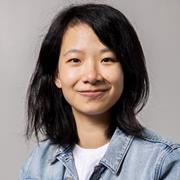Photoacoustic
Project Overview
Clinicians need a fast, non-ionizing way to assess inflammation and microvascular change at the point of care, for example, tracking small-joint synovitis or monitoring skin microcirculation in dermatologic and rheumatologic diseases. While routine tools can visualize structure, they struggle to provide molecule-specific contrast beyond a few millimeters’ depth in a portable format. Photoacoustic (PA) imaging directly addresses this need. By sending short pulses of light into tissue, PA generates ultrasound waves from the optical absorption of biomarkers such as hemoglobin and lipids. This unique principle provides images that carry both depth and molecular specificity, offering a window into functional changes that are otherwise invisible.
Most current PA systems are large and costly, limiting everyday use outside specialized settings. In this project, we aim to leverage advances in low-cost laser diodes, compact wide-band ultrasound receivers to design portable, low-power PA systems to support routine point-of-care use.
PhD Project
This PhD advances low-power PA imaging toward portable and wearable systems through integrated physics–hardware–software co-design. You will own the end-to-end effort—from modeling to prototype to algorithms:
1) Simulate and optimize PA system designs to understand performance trade-offs.
2) Prototype compact, multi-wavelength hardware guided by your simulation insights, suitable for portable/wearable use.
3) Design reconstruction methods for low-signal data to produce stable, quantitative measures.
You’ll have a lot of autonomy within your PhD to set milestones, run experiments, and shape the project’s emphasis / directions (device, physics, or algorithms) while keeping portability, safety, and clinical relevance central. You’ll also have close guidance and support from the supervisory team.
Eligibility requirements
Applicants must meet Auckland University entry requirements for admission to a PhD. Award of the scholarship is conditional on the university accepting your enrolment. The successful applicant will be guided through the process of formally applying for admission.
This is an interdisciplinary project; applicants from physics, computer science, optical/biomedical/electrical engineering, or related fields are welcome. You don’t need all of the skills below, but you should bring strength in some of the areas below and enthusiasm to learn the rest.
● Modeling & simulation: Numerical models of light and/or sound in tissue; experience with wave propagation or finite-element software (e.g., K-wave, COMSOL, or similar) is a plus.
● Hardware & prototyping: Hands-on build/test skills; basic electronics (breadboard/PCB/soldering), instrumentation, simple mechanical setups or 3D-printed fixtures.
● Optics & lasers: Working with laser diodes/LEDs (alignment, modulation/drive, power/fluence measurement).
● Ultrasound & acoustics: Transducers, coupling, basic beamforming concepts, and acoustic instrumentation.
● Algorithms & software: Signal processing and image reconstruction; solid coding in Python or MATLAB.
This project is based in Auckland, New Zealand and is available for immediate start.
Funding Notes
The successful applicant will receive a PhD scholarship of NZ$34,569 stipend per annum plus coverage of tuition fees. The stipend is for three years. The scholarship is tax-free. We also provide funding to support research, including for travel to visit collaborators and attend conferences.
Contact
To express your interest in this scholarship and PhD research opportunity, please prepare the following items:
• A brief CV including qualifications, academic achievements, list of publications, work history, and references.
• A copy of your academic transcript(s).
Please submit your application via email to the main supervisors of this project: Talia Xu (talia.xu@auckland.ac.nz) and Jami Shepherd (jami.shepherd@auckland.ac.nz), who will guide you through the scholarship application process. The deadline to submit the scholarship application is October 12th, 2025.
People involved in this project
Click on a person for additional information

Dr Talia Xu
Associate Investigator

Dr Jami Shepherd
The All Beacon Co-leader and Principal Investigator

